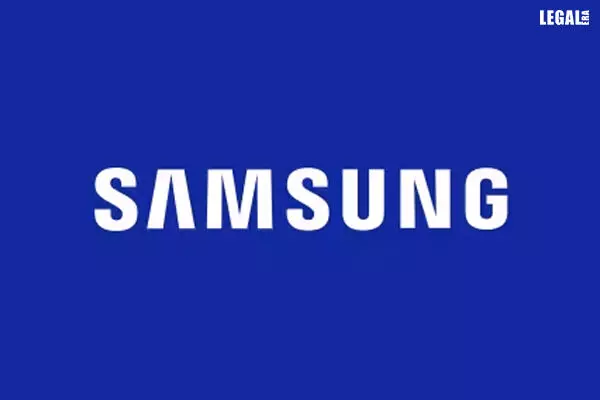- Home
- News
- Articles+
- Aerospace
- Artificial Intelligence
- Agriculture
- Alternate Dispute Resolution
- Arbitration & Mediation
- Banking and Finance
- Bankruptcy
- Book Review
- Bribery & Corruption
- Commercial Litigation
- Competition Law
- Conference Reports
- Consumer Products
- Contract
- Corporate Governance
- Corporate Law
- Covid-19
- Cryptocurrency
- Cybersecurity
- Data Protection
- Defence
- Digital Economy
- E-commerce
- Employment Law
- Energy and Natural Resources
- Entertainment and Sports Law
- Environmental Law
- Environmental, Social, and Governance
- Foreign Direct Investment
- Food and Beverage
- Gaming
- Health Care
- IBC Diaries
- In Focus
- Inclusion & Diversity
- Insurance Law
- Intellectual Property
- International Law
- IP & Tech Era
- Know the Law
- Labour Laws
- Law & Policy and Regulation
- Litigation
- Litigation Funding
- Manufacturing
- Mergers & Acquisitions
- NFTs
- Privacy
- Private Equity
- Project Finance
- Real Estate
- Risk and Compliance
- Student Corner
- Take On Board
- Tax
- Technology Media and Telecom
- Tributes
- Viewpoint
- Zoom In
- Law Firms
- In-House
- Rankings
- E-Magazine
- Legal Era TV
- Events
- Middle East
- Africa
- News
- Articles
- Aerospace
- Artificial Intelligence
- Agriculture
- Alternate Dispute Resolution
- Arbitration & Mediation
- Banking and Finance
- Bankruptcy
- Book Review
- Bribery & Corruption
- Commercial Litigation
- Competition Law
- Conference Reports
- Consumer Products
- Contract
- Corporate Governance
- Corporate Law
- Covid-19
- Cryptocurrency
- Cybersecurity
- Data Protection
- Defence
- Digital Economy
- E-commerce
- Employment Law
- Energy and Natural Resources
- Entertainment and Sports Law
- Environmental Law
- Environmental, Social, and Governance
- Foreign Direct Investment
- Food and Beverage
- Gaming
- Health Care
- IBC Diaries
- In Focus
- Inclusion & Diversity
- Insurance Law
- Intellectual Property
- International Law
- IP & Tech Era
- Know the Law
- Labour Laws
- Law & Policy and Regulation
- Litigation
- Litigation Funding
- Manufacturing
- Mergers & Acquisitions
- NFTs
- Privacy
- Private Equity
- Project Finance
- Real Estate
- Risk and Compliance
- Student Corner
- Take On Board
- Tax
- Technology Media and Telecom
- Tributes
- Viewpoint
- Zoom In
- Law Firms
- In-House
- Rankings
- E-Magazine
- Legal Era TV
- Events
- Middle East
- Africa
U.S. Court Partially Accepted Samsung’s Motion to Dismiss in Patent Lawsuit Over ‘Slide-to-Unlock’ Feature

U.S. Court Partially Accepted Samsung’s Motion to Dismiss in Patent Lawsuit Over ‘Slide-to-Unlock’ Feature
The U.S. District Court for the Western District of Texas has agreed to dismiss certain allegations levied against the tech giant company Samsung in a patent infringement case revolving around the slide-to-unlock feature used in Samsung’s Galaxy product line.
The lawsuit filed by a Swedish smartphone company against Samsung Electronics Co. for alleged infringement of two phone interface patents was trimmed back.
Neonode Smartphone LLC sued Samsung in June 2020 alleging that the Korean tech giant wilfully infringed two of its touchscreen patents—US Patent Nos. 8,095,879 and 8,812,993, both before and after the lawsuit was filed.
Neonode Smartphone LLC, a smartphone company, alleges that Samsung infringed on two of its patents – U.S. Patent Nos. 8,812,993 and 8,095,879.
These patents cover a method for interacting with the user interface of a mobile handheld computer unit through a touch-sensitive display – the slide-to-unlock feature.
However, Samsung’s urged before the District Judge Alan D. Albright to dismiss certain allegations. The Court was of the considered view that Neonode had failed to establish that Samsung had knowledge and awareness regarding the claimed patents.
The Judge agreed with Samsung’s motion to dismiss certain allegations from the lawsuit, specifically allegations of pre-suit willful and indirect infringement.
Nevertheless, the Judge granted Neonode to amend its complaint regarding these dismissed allegations. Furthermore, the Judge allowed several other allegations, including the claim of post-suit infringement, to stand.
Notably, Neonode’s technology was previously involved in a separate patent lawsuit between Apple and Samsung, which started in 2012.
In that case, Apple had accused Samsung of infringing on its own slide-to-unlock patent. Samsung had defended itself by arguing that Apple’s patent was invalid due to the obviousness of Neonode’s earlier invention.



